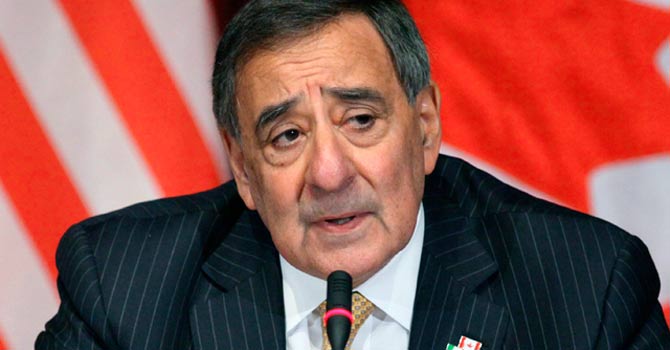ABOARD A MILITARY AIRCRAFT: The United States plans to bolster its military presence in the Asia-Pacific region through alliances instead of new permanent bases, Defence Secretary Leon Panetta said.
A new strategy focused on Asia will bring more troops to the region over the next decade and high-tech weapons designed to project American power, Panetta told reporters late Thursday on his way to a security summit in Singapore.
But the Pentagon's plan to expand the US military footprint in Southeast Asia and beyond will be carried out in collaboration with allies and partners without the construction of new permanent outposts, he said.
“We're implementing a very new strategy in this region. We're moving away from the Cold War strategy where you build permanent bases and, you know, just basically impose our power on the region,” Panetta said.
Instead of setting up large bases, US military forces — including naval ships, aircraft and troops — will deploy on temporary assignments for joint exercises, training and operations, with partner countries granting access to ports, air fields and other facilities, he said.
“We're moving towards a very innovative and creative relationship in which we develop these rotational deployments.”
With Washington grappling with budget pressures, the approach carries a lower price tag than permanent bases and generates less political opposition in partner countries.
Panetta held up as an example the planned deployment of up to 2,500 Marines in northern Australia under a new agreement.
The US defence chief said he discussed how to carry out the Asia strategy during a visit Thursday to Hawaii, where he met with the head of US Pacific Command, Admiral Samuel Locklear, who oversees forces across the region.
“We are testing that approach in Australia. We're working on developing the same kind of approach in the Philippines and elsewhere,” he said.
The Pentagon chief spoke at the outset of a tour of Asia in which he said he will seek “to define the new defence strategy for the region,” he said. “We have a strong presence now in the Pacific but we'll continue to strengthen that presence over the next five to ten years.”
“When you look at the proportion of forces that we have in the world, I think it's fair to say a higher percentage, a higher proportion of those forces is going to wind up in the Pacific.”
Recognizing the economic importance of the western Pacific and the Indian Ocean, President Barack Obama announced the shift towards Asia in January, a move seen as a counterweight to China's growing economic and military might.













































Dear visitor, the comments section is undergoing an overhaul and will return soon.